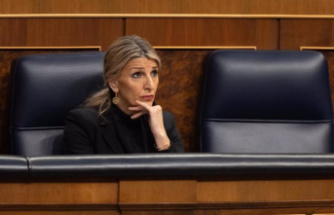This is a report that will make noise! The three experts (Jean-Luc Berard, HR director of the Safran group; Stéphane Councillor, a magistrate of the Court of accounts; and Stéphane Oustric, a professor of medicine), wanderers in September of last year by the prime minister to find the means of stopping the rise in sickness absence, were handed out Wednesday twenty proposals.
Among its 20 recommendations, the more sensitive is the introduction of a qualifying day is mandatory for all, that is to say, not paid, in case of stop-disease. This is already the case in the public service. In the private sector, the employees theoretically have three days of deficiency, but these are often supported by their employer in the framework of an agreement of branch or company. In fairness to the public service, the three experts recommend to apply the same rule to the private sector. The day of deficiency to be of "public order", that is to say that the companies will be prohibited from compensate.
Aware of the difficulty to accept such a measure, the experts suggest to counterparties. Because all private employees are not in the same boat. Some businesses keep the wages of their employees when it is in stop and are then reimbursed by the social Security: this is the principle of subrogation to pay. However, all companies do not. In this case, their employees, patients must wait, sometimes for more than a month, to obtain the payment of their daily allowances on a disease-by the Safely. In consideration of the day of deficiency compulsory, experts recommend therefore to generalize the principle of subrogation and, therefore, maintenance of salary. According to the report, 9 million employees would be the winners.
Promote the recovery of employment: telecommuting, part-timeon the other hand, in the event of illness, social Security pays 50% of the salary within the limit of 1.8 times the minimum wage, and the company pays a wage supplement mandatory (covering 90% of the salary for 1 month of arrest, and 66% for the following month). But then again, all of the employees are not entitled to this supplement. This is the case, for example, fixed-term contracts or those with less than one year of seniority, seasonal employee at home... In consideration of the day of deficiency, experts recommend again a better support for employees who are not covered by the wage supplement paid by the employer.
The report contains many other recommendations, aimed, for example, to strengthen co-operation between doctors, occupational physicians and physicians-council of Safely. It also recommends to replace the controls which are required for the sick, which must not to go out between certain hours, for medical checks on convocation. Or encouraging telecommuting and part-time as an alternative to stopping, pure and simple, in order "to prevent removal and professional". Because "at the end of 6 months of judgment, it is difficult to return to work, after a year, this is fucked up", observes Jean-Luc Bérard.
upcoming Opening of a negotiation with the social partnersIt is the hour of a report. It will be submitted, with that of the mp Charlotte Lecocq on health at work, the social partners in the coming months. The goal being, after a consultation phase, to open negotiations until the summer.
The government remains more than ever determined to bring down the judgments-disease, of which the cost to the community increases of 4% per year. The issue is important: the expenses of sickness have increased by 19 % between 2010 and 2017, which represents 1.1 billion euros over the period. "In three years, the number of days compensated is increased from 11 to 12 per year per employee in the private sector. It is as if our country had introduced an extra day's leave!", had stated Edouard Philippe at the end of August, in the JDD. And the minister of Health, Agnes Buzyn, to sink the nail by saying that "when we control the stop-work orders, 15 % are unsuitable, are of the abuse. There is someone who pays for everyone, it is the Safely. The prescribing physician, it is not he who pays".
Date Of Update: 21 February 2019, 00:00












